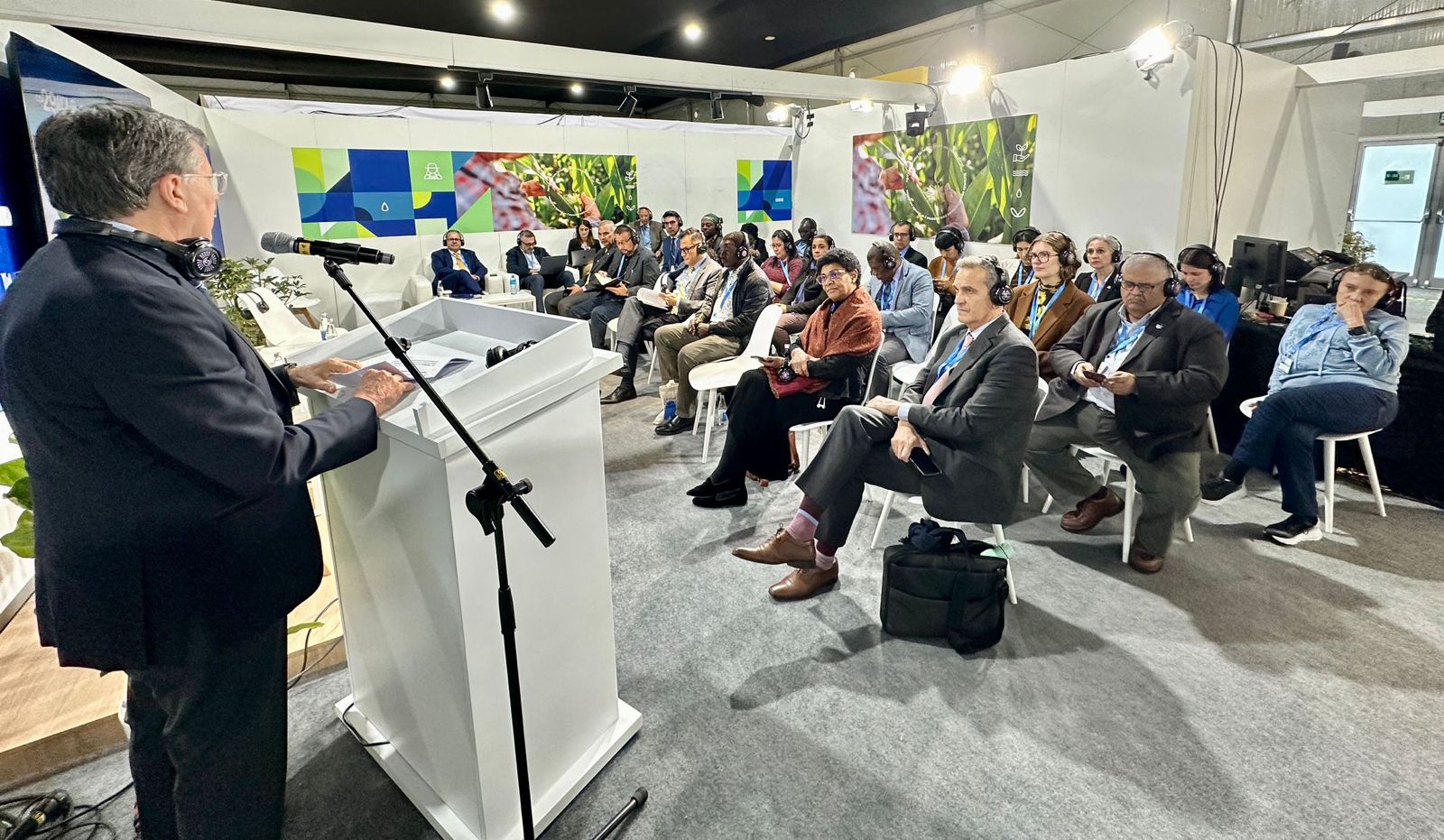The Hemispheric Fund for Agricultural Resilience and Sustainability (FoHRSA) aims to mobilize, manage, and execute resources to strengthen the institutional, technical, and administrative capacities necessary to enhance the adaptation of the agricultural sector in the Americas to climate change, whose impact severely affects productive activities.

Baku, Azerbaijan, 15 November 2024 (IICA) – At COP29, the Inter-American Institute for Cooperation on Agriculture (IICA) introduced a pioneering mechanism aimed at mobilizing financial resources to enhance the resilience and sustainability of agriculture across the Americas. The Hemispheric Fund for Agricultural Resilience and Sustainability (FoHRSA) aims to mobilize, manage, and execute funds to strengthen the institutional, technical, and administrative capacities needed to help the agricultural sector in the region adapt to climate change, which severely impacts productive activities.
IICA’s Director General, Manuel Otero, officially launched the initiative at the Home of Sustainable Agriculture of the Americas, IICA’s pavilion at the United Nations Climate Change Conference, held this year in Baku, Azerbaijan’s capital.
The pavilion serves as a collaborative space to amplify the voice of agriculture in the Americas during international climate negotiations. “I am optimistic. Recently, the Ministers of Agriculture of the Americas launched the Continental Alliance for Food Security and Sustainable Development at IICA’s headquarters in Costa Rica, and they requested the establishment of a fund for resilience and sustainability,” Otero explained.
“This is not just another fund. It is a fund to strengthen countries where farmers are suffering, especially in the Caribbean region. The philosophy is that this is a time for action without delay,” he added.
As the Americas and the world advance towards agri-food systems with reduced greenhouse gas emissions, FoHRSA will play a central role in ensuring the intersection of climate change adaptation, environmental sustainability, and economic development, while maintaining agriculture as a key driver of innovation in the continent.
Agricultural production in the Americas is increasingly impacted by climate change. According to a 2023 report by the Intergovernmental Panel on Climate Change (IPCC), rising temperatures, changes in rainfall patterns, soil degradation, pest and disease proliferation, water shortages or excess, and alterations in planting and harvesting seasons are some of the major challenges facing agriculture.
Preserving livelihoods and production
Otero explained that the Fund will act as a bridge, enabling the availability of resources from climate financing institutions to address the extreme events affecting livelihoods and agricultural production, especially for small-scale farmers and agri-businesses in the Americas.
The initiative will also empower economically limited countries, rural communities, and the private sector, helping them adapt and thrive in an era of increasingly frequent natural disasters.
IICA’s Director of Technical Cooperation, Muhammad Ibrahim, summarized the main impacts of climate change in the region, particularly the displacement of communities and farmers losing entire harvests. “Coffee cultivation areas in Central America could decrease 30% to 50% by 2050 due to climate change,” he warned.
Federico Sancho, IICA’s Manager of Planning, Monitoring, and Evaluation, provided further details on the Fund. Belize’s Minister of Agriculture, José Abelardo Mai, participated in the launch, calling the fund “excellent news.”
“We’ve seen the evidence that there are extremely vulnerable countries in the region, including Belize. On behalf of the farmers in my country, I am grateful and congratulate IICA. I won’t return to my land empty-handed,” said Mai.
Middle- and low-income countries are at risk of losing up to 12% of their Gross Domestic Product (GDP) by 2050 due to events such as storms, floods, droughts, and heatwaves if they do not transition quickly and adapt, according to international reports.
The fund’s architecture will be divided into two areas: technical assistance and business assistance. The first will provide non-repayable resources for capacity building, public policy solutions, and project formulation aimed at creating resilience strategies. The second will focus on the private sector, offering support for investments linked to good practices.
Regenerative and circular agriculture, soil health, efficient water management systems, renewable energy, and carbon absorption will be some of the financing priorities within a framework that promotes innovation, research, and development under the “One Health” concept, which addresses the situation of people, animals, and ecosystems from a unified perspective.
FoHRSA will operate in various ways, utilizing mechanisms such as donations, loans, investments, and co-financing opportunities. These instruments will be designed to facilitate access to capital for governments, regional entities, and private sector actors to develop collaborative projects.
This will ensure that the most vulnerable actors in agri-food systems, communities, and companies can access tools, technologies, and financing to adapt. FoHRSA will also provide resources to quickly respond to extreme weather events, natural disasters, and health emergencies that threaten food security in the region.
More information:
Institutional Communication Division.
comunicacion.institucional@iica.in











